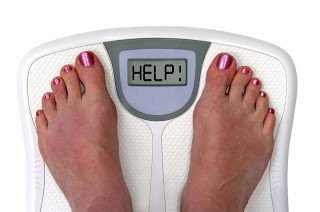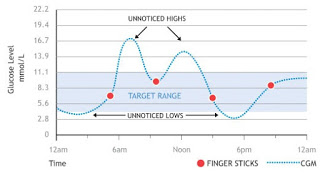Many people who struggle with excess weight find that they are able to get weight off, but keeping it off seems next to impossible.
So what exactly happens to our metabolism when we lose weight? And are any changes in our metabolism temporary, or there for the long term?
A very elegant study was conducted that answers this question – and you may be surprised by the results.
The study enrolled people in groups of three, all three of which were of the same gender and weight: one who was weight stable at their maximum lifetime weight (ie had not had any weight
loss); one who had lost at least 10% of body weight and kept it off for at least a year; and one who lost at least 10% of body weight over the most recent 5-8 weeks (using a liquid diet for 1-2 months before the study testing was performed). The average body weight of people in the study was 98 kg (216 lb), and the age range was 19-41 years. All participants lived at the research centre for the duration of the study, and were fed only a liquid formula diet, to ensure their weights were stable for at least 2 weeks before measurements of metabolism were taken. (a very impressive and dedicated protocol for both participants and investigators, wow!)
They found that in these study participants, the 24h calorie burn was about 450 calories lower for the people who had previously lost weight, regardless of whether that weight loss was just
weeks ago, or whether it was years ago (and similar for males and females in the study). Many full meals come in under 450 calories – I googled this recipe website to give you an idea (though I have not reviewed the recipes per se). So this means that the person who has lost weight has to eat this much less, EVERY DAY, for years (and possibly forever) in order to maintain that body weight, compared to someone who weighs the same but has never weighed more than that.
Here’s an example from that website: it’s a lot of food!
While this 450 calorie drop in 24h calorie burn was partly due to a drop in energy burn at rest, the biggest drop was seen in the energy burned by activity (called non-resting energy expenditure). (Read more about all components of daily energy expenditure here).
So does this mean that people who have lost weight simply exercise less? No. Actually, the literature overall suggests that it is energy burn during low-grade activity that declines (ie activities
of daily living), because our muscles become more efficient at low levels of physical activity with weight loss.
So what can you do to combat this reduction in energy burn that happens with weight loss?
Two things.
1. Be NEAT! NEAT, or non exercise activity thermogenesis, is low grade activity of daily life. Give up your parking pass and take public transit (which involves more physical activity than driving). If you do drive, park at the far end of the parking lot. Stand while you talk on the phone. Take the stairs instead of the elevator. Read more on NEAT here!
2. Exercise more. Easier said than done, and not all may be able to do this because of physical limitations – but it is because of this drop in metabolism that the US Obesity Guidelines recommend more moderate physical activity to prevent weight gain (200-300 mins per week) than they do for weight loss (150 mins per week). We have only to look at the National Control Weight Registry to see the proof – 90% of Americans who have lost 30 lbs or more, and kept it off for more than a year, exercise for at least an hour each day.
***Be sure to talk to your doctor before starting or ramping up your exercise program, and also to help you find assistance to learn about modified exercises that may work for you if you have physical limitations.***
Follow me on twitter! @drsuepedersen













